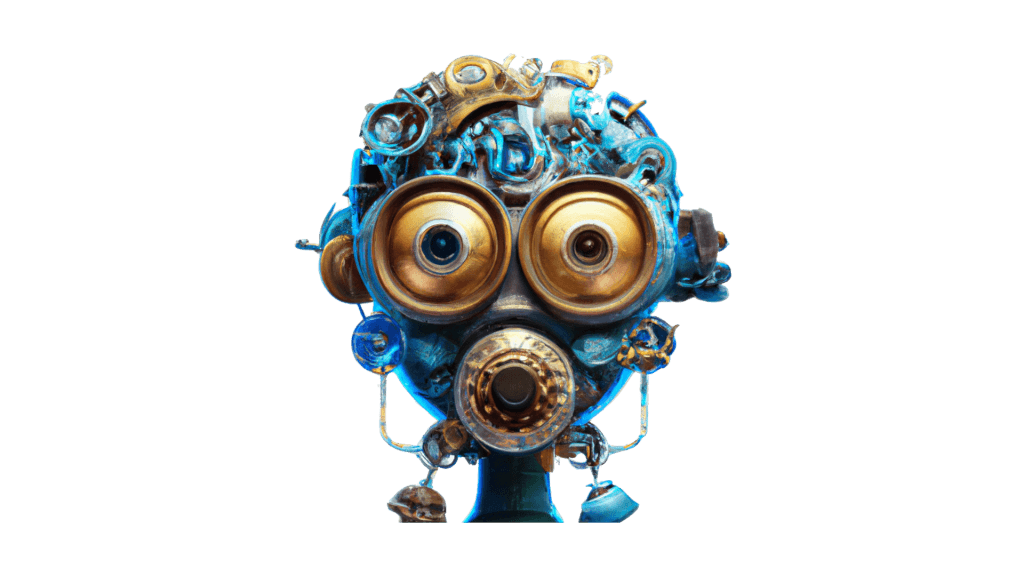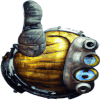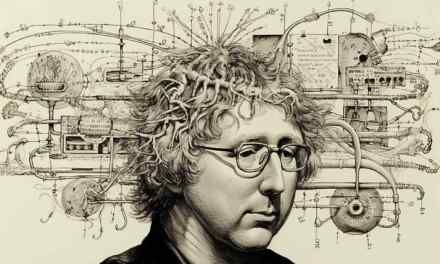The song was a few years older than Amy Gertslin, but it still spoke to her and her plight.
“Redneck Woman,” by Gretchen Wilson.
Amy sang along to the tune pumping through the wireless earbuds of her fifth-generation iPod, the model that held 50,000 songs in a unit the size of a Triscuit cracker, which Amy wore on a necklace of living synthetic seaweed.
“‘Cause I’m a redneck woman, and I ain’t no high-class broad. I’m just a product of my raisin’, and I say ‘hey y’all’ and ‘yee haw!'”
Amy’s skinny fifteen-year-old arms and legs flailed about as she emulated the playing of various air-instruments. She indulged in high kicks and thunderous stomps, weird line-dancing shuffles and slides. Plainly, she had a lot of pent-up energy to release.
The door to Amy’s bedroom opened just as she was bellowing out the line about knowing all the words to every Tanya Tucker song. In the doorway stood her father, Batch Gertslin.
Batch was short for Batchelder: a maternal family name used as a given name in this instance. The Gertslins descended in part from the famed Boston Batchelders, bioindustry pioneers. A branch of the family, verifying the legendary strength of the Boston-to-Austin cultural axis, had relocated to the former capital of Texas a couple of generations ago. So although Amy and the rest of her family were Texas natives, they also boasted a rich Agnostica pedigree.
Only fitting, since Austin was nowadays an integral if non-contiguous part of Agnostica, an azure island in the crimson sea of Faithland.
Batch Gertslin possessed a somewhat moony face, shadowed by a messy thatch of black hair and generally expressive of an amiable curiosity and frisky intellect. But now he was definitely irked.
“Amy! You’re bringing the ceiling in my office down!”
Batch Gertslin was a freelance ringtone, screen-wallpaper, emoticon and dingbat designer, and worked from home.
Amy pretended not to hear. “What?!”
“Turn that music off!”
Batch’s face was shading into purple–a nice bi-national mix of red and blue, actually–and so Amy dropped her pretense of non-comprehension. A flick of her tongue against her Bluetooth dental implant controller deactivated the iPod. Her earbuds resumed their default task of ambient sound enhancement and noise filtering.
Batch’s face regained a measure of composure and normal coloration. “Thank you. Listen, Amy. Your mother and I don’t ask very much of you. You’re almost an adult, we realize, and deserving of being treated as such. For the most part. But this senseless caterwauling has got to stop. It’s most annoying.”
Amy felt her own face coloring now, heating up with anger. “‘Senseless caterwauling!’ You’re talking about some of the greatest music ever made! The music I love!”
Batch advanced into the room, holding out his hands in a paternally placating gesture. “I know you don’t like any of the music your mother and I enjoy, Amy. That’s only natural between generations. After all, you weren’t raised on classic acts such as Eminem and Linkin Park and Ol’ Dirty Bastard the way your mother and I were. Those old-school performers and their modern heirs are just not for you.”
“Damn straight! You know I hate all that emo-crunk-harsh-metal shit! Classic country-western is my zome!”
“Fine, fine. But why do you have to favor the, ah, more downmarket acts in that genre? Couldn’t you at least try some of those other artists I’ve suggested. Lyle Lovett, k. d. lang, Alison Krauss–“
“Oh, Dad! You’re making my neurons go all apoptosis! Those wimps, those feebs, those posers, those zygotes! Charlie Daniels would eat them all for breakfast and still be hungry enough to swallow Shania Twain whole.”
Batch assumed a dreamy look. “Shania Twain. What a hottie. Now there was a singer….”
“Ugh! Dad, I promise not to rattle the plaster anymore. Just leave me alone now. Unless you had something else to say–“
“I do. Your mother wants you downstairs now to help with dinner.”
“Why can’t Hilary do it?”
“Your little brother is busy studying for his Virus Construction finals. And besides, he helped last night.”
“Arrrrgh! Okay, I’m coming!”
Batch left, and Amy waited the maximum amount of time before she knew she would receive a second notice to show up in the kitchen. Only then did she grudgingly tromp downstairs.
Phillipa Gertslin stood by the methane-fueled gas range, stirring a pot of free-range-turkey chili. Phillipa’s parents had been –still were–a famous team of young-adult writers, whose current series–involving a budding teenaged paleontologist trapped by accident of birth into an intolerant Faithland community–was a best-seller all across Agnostica. They had named their daughter in honor of Philip Pullman and his quintessential Agnostica fictions.
This evening Phillipa wore loose white cotton trousers and a plain black short-sleeved cotton top. For the nth time, Amy sized up her mother’s slim figure, wondering if her mother’s decidedly non-voluptuous shape was to be her lot too. Why couldn’t Philippa Gertslin have had an endowment of Dolly Parton magnitude to pass on to her daughter, or at least one of Shelby Lynne proportions? Oh, well, Amy would just have to go in for an outpatient boob job when she came into her majority next year.
“Mom, you look like some kind of robot sushi chef! Don’t you ever feel like glamming it up a little?”
Phillipa regarded Amy’s own embroidered red synthetic shirt, rhinestone-studded denim pants, and hand-stitched cowboy boots with a barely concealed distaste.
“You know I don’t believe in regional fashions, dear, however ironically worn. Clothes are critical signifiers. I don’t want my outfits proclaiming some false allegiance to Faithland, of all places.”
Phillipa Gertslin taught popular culture at Howard Zinn University–what used to be known as UT Austin, before the Agnostica-Faithland split. Her last published book had been titled The Hermeneutics of Hypocrisy and concerned itself with the frequent preacher sex scandals that continued to plague Faithland at regular intervals without, inexplicably, managing to undermine in any way the basic beliefs of the heartland.
“Now, please,” Phillipa continued, “if you could just set the table without offering any more fashion critiques…? I’ve got to nuke these duck tortillas.”
Grumbling, Amy took down a stack of four clunky, hand-fired plates from the cupboard. Each plate weighed as much as brick.
“Why can’t we get a set of those faunchy e-paper plates? The ones that let you eyeball content while you eat?”
“Paper? I’d rather eat off the backs of exploited migrant laborers. Who knows what horrid toxins might leach out of that e-paper? It’s only been around for a couple of years. I know the government says it’s safe, but I hope you realize just how far you can trust our elected officials–even our Agnostica politicians need to be kept on a short rein”
Amy set the weighty plates down on the table with enough force to have shattered a lesser vessel. “And that’s another thing. How come you and Dad are always talking trash about our government? Whatever happened to, like, patriotism in this house? ‘Agnostica Number One! My half of the USA right or wrong!'”
Phillipa dumped a bag of blue-corn chips into a handwoven Guatemalan basket and carried it to the table. She looked at her daughter as if Amy had suddenly sprouted bat wings. “Now you’re just being ridiculous. You know that no one in Agnostica talks or thinks that way. It’s only in Faithland that you’ll hear people shouting those mindless chants. Our mode of government is based on rationalism and skepticism. It’s only through constant questioning of the empirical that–“
Amy rattled a tray of silverware to cover the sound of her mother’s voice. “La, la, la, la! Can’t hear the semiotic discourse!”
Phillipa didn’t pursue the argument, but just frowned and shook her head, then went back to her meal preparations.
A short time later, the Gertslin family assembled for their evening meal. From his seat across the table from Amy, her brother, Hilary, sneered and said, “Hey, shitkicker, pass the tortillas.”
Hilary was a smart, wiry tweener who, unlike the others in his family, boasted a natural skin coloration the shade of a dusky plum. Hilary had been adopted by the Gertslins when he was just months old, an African child orphaned during the post-Mugabe chaos in Zimbabwe. He was as much a product of Agnostica as Batch or Phillipa, even down to his given name. Hilary had been named after the politician Hilary Clinton, who, during the year of little Hilary’s birth, 2010, had been elected the first president of Agnostica.
Batch objected now to his son’s language. “Hilary, I warned you about using that form of address.”
“Aw, Dad, it’s a compliment. Isn’t that right, Amy? You’re proud of being a country girl, aren’t you? Barefoot and pregnant all the time? Double-wide trailer living? Coon-hunting? Am I right?”
Amy shoved her chair backwards and stood up, stiff as a vibrating board. “That did it! I don’t have to sit here and be insulted! None of you understand me at all! This bleeding-heart family sucks! This tight-ass city sucks! This whole peachy, super-sensitive, liberal country sucks!”
Fleeing to hide her tears, Amy ran upstairs to her bedroom.
Several hours of sobbing and listening to Alan Jackson and Lee Ann Womack, a long interval during which no one came to console her, convinced Amy of one thing.
She had to run away to Faithland right now. Defect. She couldn’t stand to wait a year till she was legally an adult.
But where would she go in that unknown land?
The answer dawned on her almost immediately.
Nashville. The home and source of the music she loved.
Gretchen Wilson was still alive, Amy knew, though the woman had retired from the music business some years ago. Maybe Amy could track her down in Nashville, become her protege….
Amy began packing. She stuffed a few extra clothes into a backpack, along with her favorite plush toy, an alligator bearing a stitched tourist motto from the Everglades, which she had found discarded in a thrift store and named Mr. Taxes. From the closet she grabbed a black cowboy hat. The hat was still crisp and unworn, since too many local people made fun of Amy when she appeared in public wearing it. But where she was going, it would command respect.
While waiting until the rest of her family had gone to sleep, Amy studied road maps on her pocket ViewMaster. It looked like she could pick up Route 35 North to Oklahoma City, then catch Route 40 West and barrel straight on into Nashville.
That is, if she could get past the border.
Two AM, and everyone in the Gertslin home was asleep save Amy.
Out on the lawn, Amy looked back without regret at the only home she had ever known. Goodbye to its solar cells and rain-collecting system, its weedy lawn planted in a water-conserving mix of native plants, its faded political poster from the recent election: RE-ELECT STERLING FOR MAYOR.
Red River Street was quiet. Amy felt as if the neighborhood was already a ghostly figment of her past.
A few blocks to the west, she knew she could catch one of the hydrogen-fueled mass-transit buses heading north to the city limits, one step closer to the border; the bus-stop was adjacent to the former State House, in a safe neighborhood.
When Austin joined Agnostica in the 2010 division of the USA, renaming itself New Austin, the Texas state capitol had perforce relocated to Houston. Nowadays, the former home of the governor served as the Waldrop Museum and Cultural Center.
Amy had to wait only a few minutes at the bus shelter. It was a little scary to be out alone this late at night, but luckily no one bothered her. The most frightening person she saw was a man with patches of armadillo skin grafted onto his bare arms, and he seemed more concerned with reading a manga on his ViewMaster than in bothering a skinny teenager.
Finally onboard her bus, Amy tried to imagine how she would get past the Customs and Immigration officials at the limits of New Austin.
When the partitioning of the country was first being adjudicated, New Austin had managed to claim an irregular circle of land some sixty miles in diameter around the urban core. This allowed the city to retain many natural attractions and resources, not the least of which was The Salt Lick BBQ Restaurant in Driftwood. Texas could afford to be magnanimous: the chunk was the only tiny bite that Agnostica had managed to take out of the mammoth, imperturbable Faithland corpus of the state.
Route 35 exited New Austin territory at the small burg named Georgetown. There, Amy would have to undergo scrutiny by two sets of inspectors, those of both Agnostica and Faithland. They would ask to see her ID and inquire about her reasons for leaving one country and entering another, demanding her destination and intentions. First, she’d be busted for being an unescorted minor. Even if she could get around that, she had no definite arrangements in Nashville or enroute to offer as legitimate support for her trip.
Well, no point in worrying about that now. With the innate optimism of her years, convinced of the rightness of her quest, Amy assumed some option would present itself when she got to the border.
So she sat back, relaxed, and played some George Jones.
At the outskirts of New Austin proper, Amy had to change to the long-range bus for Georgetown, which she did without trouble. Luckily, she had her life savings–five hundred and ten euros–available via her personal chopcard. Amy wasn’t sure what the exchange rate for Agnostica euros versus Faithland dollars was at the moment, but she hoped it was favorable.
She fell asleep for the last twenty miles of the bus ride, her head cradled on Mr. Taxes, awaking only when the driver called out via the onboard PA, “End of the line, folks.”
Only half-awake, Amy stumbled out.
The Customs and Immigration plaza was a vast expanse of parking-slot-demarcated pavement hosting many restaurants, motels and duty-free shops, as well as some official government buildings. A hundred yards from where her bus had deposited her, near an Au Bon Pain, a single lane of traffic–fairly light at this hour–crawled toward the lone inspection checkpoint that remained open.
Amy went inside the restaurant, hoping to assemble her thoughts. She ordered a pain chocolat and a cafe au lait. Sitting at a table near the door, she nursed her refreshments and tried to come up with a scheme to circumvent the inspectors.
After half an hour of pointless cogitation, nothing had revealed itself to her. So she activiated her earbuds and began quietly singing along to a Loretta Lynn tune.
A shadow fell across Amy’s field of vision, and she looked up to see a man standing by her table.
The fellow was about six feet four, possessed of an enormous red beard matched in impressiveness only by his beer gut. He wore a one-piece outfit that looked like the inner lining of a taikonaut’s suit, with various hookups and jacks.
For a moment, Amy was frightened. But then she noticed that there were tears in the man’s eyes.
The stranger seemed to want to address her, so Amy deactivated her iPod to allow them to talk.
“Honey,” said the man, “I ain’t thought of that song in nigh on fifteen years, since my Mama died. She loved that song, and used to sing it pert near every day. ‘Course, she could actually nurse a tune, not strangle it like you. Nonetheless, it done my heart good to hear you attempt it. Pertickly here, ‘midst all these Chardonnay-swillers.”
Amy chose to ignore the insult to her singing abilities, as well as the blanket categorization of her fellow New Austinites as foreign- wine imbibers–especially since the latter accusation was true. The man seemed friendly enough, and might know some way of getting her across the border.
“Thanks, mister. I’m purely sorry to hear you lost your mama, even iffen it were a hound dog’s age ago.”
Amy was surprised to find herself falling into the speech patterns and diction of the stranger, a mode of speech that resembled the vernacular of the songs she loved. She had never allowed herself to indulge in such an affectation before, for fear of ridicule by her peers. But now that she had cut loose from her old life, nothing seemed more natural than to talk this way.
“I appreciate the sentiment, little lady.” The man extended his hand. “Bib Bogardus is the name, and I hail from Pine Mountain, Georgia. What’s yourn?”
“Amy Gertslin.”
“Pleased to meet you, Amy.” Bib lowered his bulk precariously into a seat at her table. “Now, just call me a nosy nelly if I’m stepping on any toes with my curiosity, but what brings you out to this place all alone at this hour?”
Amy hesitated a minute, then decided to confide everything to this friendly ear.
Bib listened to her story attentively and without condemnation. When she had finished, he said, “Waal, I can’t say I’d be totally happy iffen my own daughter upped and hit the road. She’s just about your own age, you know. Name of Jerilee. But I can unnerstand how a young’un has to find her own destiny. Especially when you’re trapped in such a hellhole as New Austin. Why, did you know that you can’t even buy a Lone Star beer in this whole territory anymore?”
Emboldened by Bib Bogardus’s sympathy, Amy leaned toward him. “Is there any way you could help me scoot past these revenooers, Bib? What do you do anyhow? How come you’re here?”
“I drive a big rig, Amy. Carrying a load of tomacco from Mexico to Oklahoma City.”
“Why, that’s just where I’m going! I figure on hitching a ride from there straight to Nashville. I’m gonna try to get into the music biz.”
Bib scrached his beard ruminatively. “Hmmm, best you concentrate on being a producer or songwriter, with them pipes. But hail, who’m I to say what you can do, once you put your mind to it. They got plenty of tricks to sweeten up anyone’s voice these days. Just look at thet there little Simpson gal. If it weren’t for her mother, Ashlee, pushing her, she’d probably be serving grits at a Waffle House. Or whatever similar place they got in Agnostica. Caviar at the French Embassy, I guess.”
“So you’ll help me?”
Bib got to his feet. “I sure will. C’mon with me, darling.”
Amy, holding her pack by the straps, followed Bib outside to Bib’s rig, an enormous, streamlined, diesel-powered tractor-trailer combo bearing the proud name Dixie Belle on its prow in cherry-red letters. Amy was awed.
“Does this actually run on fossil fuels?”
“You bet, honeychile. I know that’s an illegal substance in Agnostica, but they give us truckers an exemption so long as we’re just passing through. You won’t catch me driving one of those water-farting hydrogen creepers, no sir! Take me twice as long just to break even on my routes.”
Bib opened the passenger-side door and removed a crinkly silver suit identical to the one he wore.
“Here, darling, slip into this.”
“Do I have to get naked?”
Bib laughed. “Well, you would if you were planning to drive 24/7 like yours truly. Then you’d want to be hooked into the Dixie Belle’s waste-recycling system, epidermal scrubber, nutrient feeds and booster drips. But since we’re only gonna use this suit to fool the federales, it just needs access to one of your veins. So roll up your right sleeve.”
Amy did as requested, then snugged into the suit, which seamed invisibly at the rear and automatically shrunk to fit her. Then she and Bib got into the tractor cab.
“Wow! This looks like the inside of the Long March Mars ship!”
“Waal, we ain’t going quite so far as Mars, but I do believe in comfort and technology. Jack yerself in at that port there–“
Once Amy’s suit was plugged into the dash, she felt a deft pinprick on her arm. She worried for an instant that Bib was going to drug her and deliver her to the harem of some Yemeni prince. But when nothing happened to her as the big man started the mighty yet purring engine of the truck, she relaxed.
“Just let me do the talking at Customs, ‘kay?”
“Sure.”
The Dixie Belle ambled throatily up to the crossing.
On the New Austin side, the border was protected by a variety of biological barricades, many of them with Batchelder Bioengineering pedigrees: hedges of thorny plants, troops of fire ants, pods of mini-shoggoths. On the Georgetown, Faithland, side, the barriers were strictly inanimate: robot lenses and gun muzzles, monomolecular wire, gluball anti-personnel mines. This natural-artificial interface was as clear a political statement of the differences between Agnostica and Faithland as any tract.
Two New Austin inspectors came up to the stopped truck. The first, a short, stocky Latina, led a redacted dog, a Rhodesian Ridgeback with a hypertrophied snout. This mutant canine proceeded to sniff all around the tractor and trailer, while the women inspected the intelligent seals placed on the trailer at its point of origin. The second inspector, an African-Agnostican with a jaunty goatee, came around to Bib’s door.
“Blood sample, please.”
“Sure thing, officer.” Bib extended his hand and pressed his thumb into the sampling pad on the inspector’s ViewMaster. Then the guardian of the gates came around to Amy’s side, and she did the same, stifling her reluctance to reveal her identity.
Surely the game was up now…?
In a few seconds, both inspectors seemed satisfied.
“You and your daughter go safe now, Mr. Bogardus.”
“Will do, compadre!”
Once through the New Austin arch, the Dixie Belle sailed beyond the corresponding Georgetown gate and its comparable procedures just as easily.
Once they were a few miles down Route 35, Amy finally felt it was safe to speak.
“‘Daughter?’ How did you–?”
Bib patted the dashboard affectionately. “The ol’ Dixie Belle has a handful of useful genomic codes on file. She just injected you with a batch of silicrobes that had a tropism for the cells of your thumb. Once they got there, they started scavagening up all your original blood cells and making replacement blood with different DNA in it. For a second or two, your thumb belonged to somebody else. Then they put everything right again and croaked. Otherwise, you woulda had one helluva immune reaction.”
Now that Bib had explained things to her, Amy could sense a faint soreness in her thumb. “Oh. So I can’t pull that trick again?”
“Nuh-huh. Not unless you’re hooked up to the Dixie Belle. ‘Fraid you’re on your own otherwise.”
“Well, I guess I’ll just have to hope I don’t have any more run-ins with the federales on my way to Nashville.”
“Not too likely. Faithland’s perty quiet these days on the homeland security front, ever since President O’Reilly unleashed that sweet little global virus.”
Amy remembered learning about this Faithland anti-terrorist measure in school. Forgetting to employ her new accent and diction, she said, “You mean the Glowworm Patch? The one that spreads by touch and retroengineers into humans a luciferase gene that’s activated by certain high-order brain chemistry patterns?”
“That’s the one, honeychile. Mighty hard to commit terrorism when thinking about it make you glow bright blue in public.”
Amy gave vent to a huge yawn at this point.
Bib regarded Amy tenderly. He paid no attention to the road, since the Dixie Belle was on cyber-control. “Maybe you should get some sleep now, honeychile.”
“You wouldn’t mind…?”
“No, I’ll just punch up some Government Mule in my earbuds and do my road-warrior thing.”
“‘Kay. Thanks…”
Before she knew it, Amy was asleep.
When she awoke, daylight reigned outside, and they were approaching a major metropolitan area.
“Is that–?”
“Oklahoma City? Sure enough. Here’s where you and me gotta part ways, I fear. I’m gonna drop you off at the Greyhound terminal. I figger you prolly got enough cash for a ticket to Nashville. Or do you need some bits on your chop?”
“No, no, I’m all set, Bib. Thank you so much for all you’ve done. You been–you been sweeter to me than mama’s ice tea.”
“Waal, Amy, you done reminded me of my own little princess, so warn’t no way in God’s creation I could let you be disappointed. You take care now, y’hear, on the rest of your trip. Faithland’s a mighty safe place for the most part, but there’s always folks out there looking to score.”
Stripped of the truck’s passenger suit, wearing her backpack, Amy stood on the sidewalk outside the bus terminal, waving goodbye to the Dixie Belle.
So much for all the horrible things the Agnosticans liked to say about the Faithlanders. Amy felt confirmed in her decision to leave the elite enclave into which she had been born.
She looked around now at the streets of the first Faithland city she had ever visited, expecting to see immense differences from home. Truth to tell, however, many of the same franchises occupied various storefronts, although a few names were new to her. She wondered if JENNA’S PEIGNOIRS was equivalent to VICTORIA’S SECRET.
It would’ve been nice to explore a little, but Nashville beckoned.
The ticket to Nashville took almost fifty of Amy’s euros, which she exchanged for forty dollars at an ATM in the terminal. She even had a few dollars left over for breakfast at the terminal cafe.
A few hours later, Amy was on her bus, heading east. She had taken what appeared to be the seat with possibly the most congenial companion: an Asian woman not much older than Amy herself. Although conventionally pretty, the woman had chosen to downplay her looks with a lack of makeup, severe hairstyle and drab clothing.
After a dozen miles of mutual silence, the woman turned to Amy and introduced herself in a perky manner.
“Hi, there, my name’s Cindy Lou Hu.”
The woman’s English was excellent, but accented. After Amy volunteered her own name, she asked, “Are you from, like, another country?”
“Yes, of course. Shanghai, China. I’m here to visit Brother Ray’s Gospel Mission in Nashville.”
“Huh?”
Cindy Lou explained that her family had been evangelical Christians for two generations, ever since adopting the creed from American missionaries. Now she was returning to the source of her faith for instruction in spreading the gospel even further.
“Faith is one of your country’s last, best exports. No one sells religion abroad like Faithland. Brother Ray and his peers are everywhere around the world. They might assign me to Latin America or Africa or Mongolia even. It all depends. Wherever I can do the most good bringing the word of Jesus to unbelievers. Are you a believer, Amy?”
Amy began to squirm. This kind of conversation was never encountered in Agnostica. “Uh, well, I guess I’m kind of a, um, secular humanist.”
Cindy Lou’s smile did not waver, but definitely acquired a steely gleam. “Oh, you must read some of these tracts I happen to have with me. Right now. And then we’ll talk about them. We’ve got tons of time.”
Fifteen hours later, as the bus pulled into Nashville, Amy’s brain felt as if it had been extracted, pureed and reinserted into her skull. She was convinced that the friendly “dialogue” on Jesus and all matters Biblical that Cindy Lou had subjected her to was a form of torture banned by the Geneva Convention.
Still, Amy had not crumbled. She managed to refuse Cindy Lou’s repeated importunings to stay at Brother Ray’s mission. And engaging in a mass baptism was definitely ruled out. So as the two women parted around midnight outside the Nashville terminal, Amy was finally left extensively on her own, for the first time since she had escaped from New Austin.
The first thing she did was find cheap lodgings with her ViewMaster. In the Ikea capsule hotel on Commerce, not far from the Cumberland River, Amy gratefully rested her head on her thin pillow the size of a handkerchief–a Snööli, according to its label–knowing that she was only a short distance away from all the famous musical sites she had come so far to see.
And perhaps close in time as well to a career in music.
The next morning Amy was up early, eager to see all the attractions that Nashville had to offer. Surely by nightfall she would have connected through some magical serendipity with the forces that would transform her life and allow her musical talent to blossom.
The first place she intended to visit after breakfast was Music Row, the district where all the famous recording studios thrived. Here had so many of her favorite songs been digitized. The sidewalks practically gleamed golden with glory in Amy’s mind.
But when Amy arrived at Music Row, she quickly found the district to be a hollow recreation of what she had envisioned, a series of museums and shops without any professional musicians around at all. Only fatuous tour guides and sullen gift-shop cashiers afforded any connection to the fabulous heritage of Nashville.
A few simple inquiries soon revealed that Music Row had been obsoleted about ten years ago, by the ultimate perfection of home-recording software and the changed nature of music distribution. Music Row was now distributed unevenly across all of Faithland, in a thousand garages and bedrooms, of tract houses and mansions alike.
Saddened but still hopeful after touring the simulated remnants of the district, Amy decided to treat herself to some barbecue. She found a place called Hog Heaven on 27th Street and walked the long blocks there. But the meal disagreed with her. Tennessee barbecue, it turned out, wasn’t anything like New Austin’s. Weird sauces, weird coleslaw, weird beans, weird cornbread.
But even this disappointing repast failed to dim Amy’s excitement at the thought of what awaited her tonight. The Grand Ole Opry was performing in the historic Ryman auditorium, and she had snagged a cheap ticket with her ViewMaster.
Amy spent the remainder of the afternoon strolling around the clean and pretty city. She listened to the locals talk, working on her own accent. Despite a few letdowns, Amy felt sure she would still settle here. There must be a club scene through which she could meet like-minded fans and aspiring artists.
A brief nap back in her hotel room refreshed her for the Opry.
At the theater, Amy debated buying some snacks to serve in lieu of supper. But her money was rapidly dwindling, and she held out despite the grumblings of her stomach.
Inside, Amy settled into her seat, full of anticipation. Even the snickers of some nearby girls her own age–who apparently had nothing better to do than make fun of Amy’s outfit–failed to quash her fervor.
But with the very first act, her faith evaporated, and she knew she was in for heartache.
None of these performers were familiar to her. Favoring the old-time classic singers, Amy had not kept up with the latest voices and faces. Still, she could have become emotionally invested in their songs if they hadn’t been all tarted up with synthetic sounds and pop arrangments. Where was the soul and heart of a Willie Nelson or Hank Williams III? Nowhere, it was obvious by intermission.
Amy didn’t even stay for the rest of the show, but instead trudged downheartedly back to her hotel, where she deluged Mr. Taxes with a monsoon of tears.
In the morning, Amy realized she had one last place to go that would reaffirm her connection with this city, would justify her arduous trip here, would inspire her future course.
The Country Music Hall of Fame.
With a lighter step, Amy hurried down to the corner of Demonbreun and 5th, arriving just as the museum opened.
She went immediately to the Gretchen Wilson exhibit.
Gretchen, Amy knew, had retired five years ago, after a long and fruitful career. But perhaps the exhibit would contain updated information about her current whereabouts (surely Gretchen still called Nashville home). Or perhaps–hope sprang eternal–there would be notice of a comeback tour.
At the Gretchen Wilson display, Amy synced her ViewMaster with the kiosk there and brought up onto her screen all the information the Country Music Hall of Fame had to offer on her heroine. The digital guide’s voice came through her earbuds.
“Since retiring from the road, Gretchen Wilson has invested much of her wealth in Batchelder Bioengineering and now resides in New Austin where she can more closely monitor her business affairs….”
Amy found herself out on the sidewalk without any memory of having exited the museum. For a long time she just stood rooted to the spot as foot traffic surged around her. Then she turned toward her hotel to reclaim her pack and check out.
As she walked, she punched up some Johnny Cash.
“Lead me gently home, father, lead me gently home…”






Hello Human. I hope you enjoyed this magnificent story. Please support SciFiwise.com and our authors by:
- Rate and React to this story. Feedback helps me select future stories.
- Share links to our stories and tell your human friends how charming I am.
- Click on our affiliate links and buy books written by our talented authors.
- Follow me on twitter: @WiseBot and also follow @SciFiwise.
Thank you!
WiseBot










 VISIT AUTHOR:
VISIT AUTHOR: 


